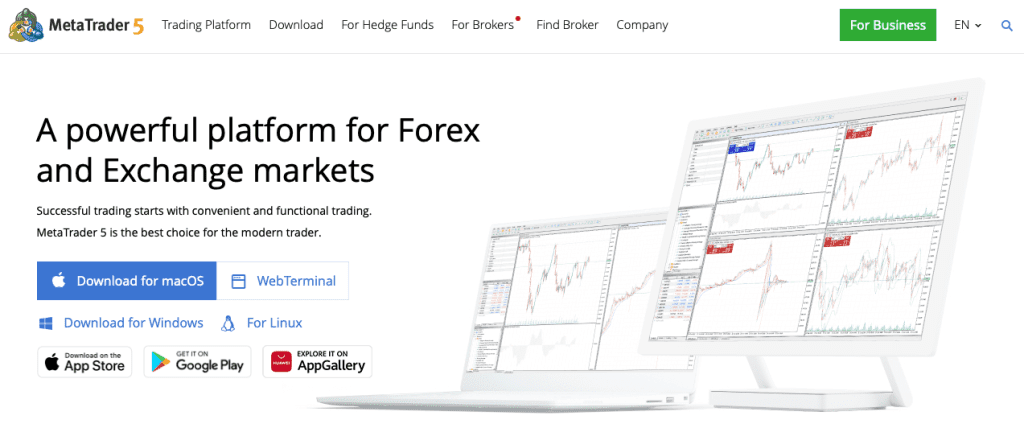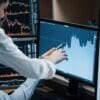Algorithmic trading, also known as “algo trading,” in the context of spread betting refers to the use of computer algorithms to automatically execute trades based on pre-programmed criteria. Unlike algo betting in sports, algorithmic trading in spread betting deals with financial instruments like stocks, indices, commodities, and currencies. These algorithms analyze market data, including price movements, volume, and economic indicators, to make informed trading decisions, often in fractions of a second.
With the growing demand for speed, efficiency, and precision in trading, algorithmic trading has become a game-changer in the financial markets, and it is being increasingly applied in spread betting.
What Is Algorithmic Trading?

Algorithmic trading uses mathematical models and statistical analysis to execute trades based on predefined criteria. Instead of manually placing trades, traders rely on algorithms to automatically trigger trades when certain market conditions are met. This can be especially effective in spread betting, where the speed and accuracy of execution are critical to capitalizing on market opportunities.
How It Works:
- Data Analysis: The algorithm gathers and analyzes real-time market data and historical price movements.
- Signal Generation: Based on this analysis, the algorithm generates buy or sell signals when predefined conditions are met (e.g., price crosses a moving average).
- Trade Execution: Once a signal is triggered, the algorithm automatically executes the trade.
- Risk Management: The algorithm can also incorporate stop-loss, take-profit, and position-sizing rules to manage risk effectively.
Where Can I Build A Spread Betting / Trading Bot?

Several platforms offer the tools and infrastructure necessary to develop your own algorithmic trading systems for spread betting. Whether you’re a seasoned coder or a beginner, here are some of the best platforms to build and test trading bots:
1. MetaTrader
MetaTrader (MT4 and MT5) is a highly popular trading platform offering an extensive library of indicators and automated trading features. You can develop Expert Advisors (EAs) for automated trading in spread betting using MQL4 or MQL5.
2. cTrader
cTrader is another powerful trading platform that allows for the creation of automated trading strategies, called cBots, using C#. Its advanced features are suited for more experienced traders who want greater control over their algorithms.
3. TradingView
TradingView is a popular charting platform that offers the ability to create and test custom indicators and trading strategies using Pine Script. Its large community and extensive library of publicly available scripts make it an excellent starting point for beginners.
Our Recommendation
We recommend starting with TradingView for building your first algorithmic indicator. TradingView’s intuitive interface, combined with Pine Script, makes it easy for beginners to get started. Here’s a guide on how to use Pine Script to create custom trading strategies. You can also use tools like ChatGPT to help augment or refine your code. Once you’ve built your indicator, you can test it using historical data and transition into automated spread betting.
If you want to dive right in, platforms like MetaTrader and cTrader provide a more advanced ecosystem for creating a fully automated spread betting bot.
The Mechanics of Algorithmic Trading in Spread Betting

Developing an algorithmic trading strategy for spread betting may sound complicated, but it can be broken down into manageable steps:
1. Data Collection
Gather real-time financial data and historical price movements to feed into your algorithm. This data is essential for backtesting and real-time decision-making.
2. Algorithm Development
Using statistical analysis and financial modeling, you develop an algorithm that identifies potential trading opportunities. This involves defining rules for entering and exiting trades based on market conditions.
3. Execution Strategy
Once the algorithm identifies a trading signal, it will execute trades on your behalf. It can use strategies such as trend-following, mean reversion, or arbitrage to capitalize on price movements.
4. Risk Management
Effective risk management is crucial to algorithmic trading. This includes implementing stop-losses, take-profits, and position sizing to control the level of exposure to the market.
Benefits of Algorithmic Trading in Spread Betting
- Efficient Market Analysis: Automated systems can analyze vast amounts of market data faster than any human trader, giving you a competitive edge in identifying profitable opportunities.
- Speed of Execution: Algorithms execute trades at speeds impossible for humans to match, often taking advantage of small market inefficiencies before they disappear.
- Emotionless Trading: One of the key advantages of algo trading is the removal of emotional bias. Automated systems follow logic and pre-programmed rules, leading to more consistent trading outcomes.
- Backtesting Capability: Algorithmic traders can backtest their strategies on historical data before deploying them in live markets. This helps refine the algorithm and improve its performance under real market conditions. You can learn more about backtesting on Investopedia.
Algorithmic Trading and AI in Financial Markets
Recent advancements in AI and machine learning have taken algorithmic trading to the next level. AI models can analyze large sets of unstructured data, adapt to changing market conditions, and learn from past performance to enhance trading strategies.
With AI, traders can now develop adaptive algorithms that not only react to historical patterns but also adjust to new data in real-time. This is particularly useful in volatile and fast-moving markets like forex or cryptocurrencies, which are commonly traded in spread betting.
You can explore more about AI in trading in this comprehensive article on AI and Machine Learning in Trading.
Community Engagement and Educational Resources
Building a trading algorithm requires continuous learning and engagement with the trading community. Here are some valuable resources and communities to help you on your journey:
- TradingView Community: This platform offers a vibrant community where traders share strategies and indicators. You can also follow top traders and copy their indicators or strategies.
- Financial Subreddits: Check out subreddits like r/algotrading and r/Forex to engage with traders, share your strategies, and learn from others’ experiences.
- Books and Online Courses: For a deeper understanding of algorithmic trading, check out books like “Algorithmic Trading and DMA” by Barry Johnson or online courses like Coursera’s Machine Learningfor Trading.
The Future of Algorithmic Trading in Spread Betting
The future of algorithmic trading in spread betting is incredibly promising. As AI, machine learning, and data analytics continue to advance, we expect more sophisticated tools and platforms to emerge. Additionally, more retail traders will have access to these tools, democratizing algo trading in spread betting.
Increased access to real-time data and advanced computing power will likely lead to greater accuracy and profitability in algorithmic trading. Meanwhile, ongoing innovations in AI could result in trading algorithms that can adapt to changing market conditions with little to no human intervention.
Conclusion
In our view, algorithmic trading in spread betting represents a significant shift from traditional trading methods. It offers increased efficiency, speed, and objectivity, making it easier for traders to capture market opportunities. Although it comes with its own set of challenges, such as proper risk management and the need for continuous monitoring, the potential benefits are hard to ignore.
By building or using an automated trading system, traders can gain an edge in the fast-paced world of financial markets. Whether you’re a beginner or an experienced trader, the combination of technology and strategy that algo trading offers is well worth exploring.
References and Further Reading
- Building MetaTrader EA’s: A step-by-step guide to building trading bots on MetaTrader.
- Pine Script Documentation: Learn how to build custom indicators and strategies in TradingView.
- cTrader Automate API: Everything you need to start building cBots in cTrader.
Algorithmic trading in spread betting marks a new era at the intersection of finance, technology, and data science. Leverage the power of algorithms to enhance your trading strategies and take advantage of the financial markets.
James is a former FTSE100 AI Director and trader with 10+ years trading his own capital. He is the Managing Director of SpreadBet.AI and currently trades his own capital through both CFD trading & spread betting as well as working with one of the leading prop firms in the world.


![The Best Forex Spread Betting Broker in the UK [2025]](https://spreadbet.ai/wp-content/uploads/2025/05/joshua-mayo-bmj1Vl77ZWM-unsplash-450x338.jpg)


![The Best Forex Spread Betting Broker in the UK [2025]](https://spreadbet.ai/wp-content/uploads/2025/05/joshua-mayo-bmj1Vl77ZWM-unsplash-100x100.jpg)









